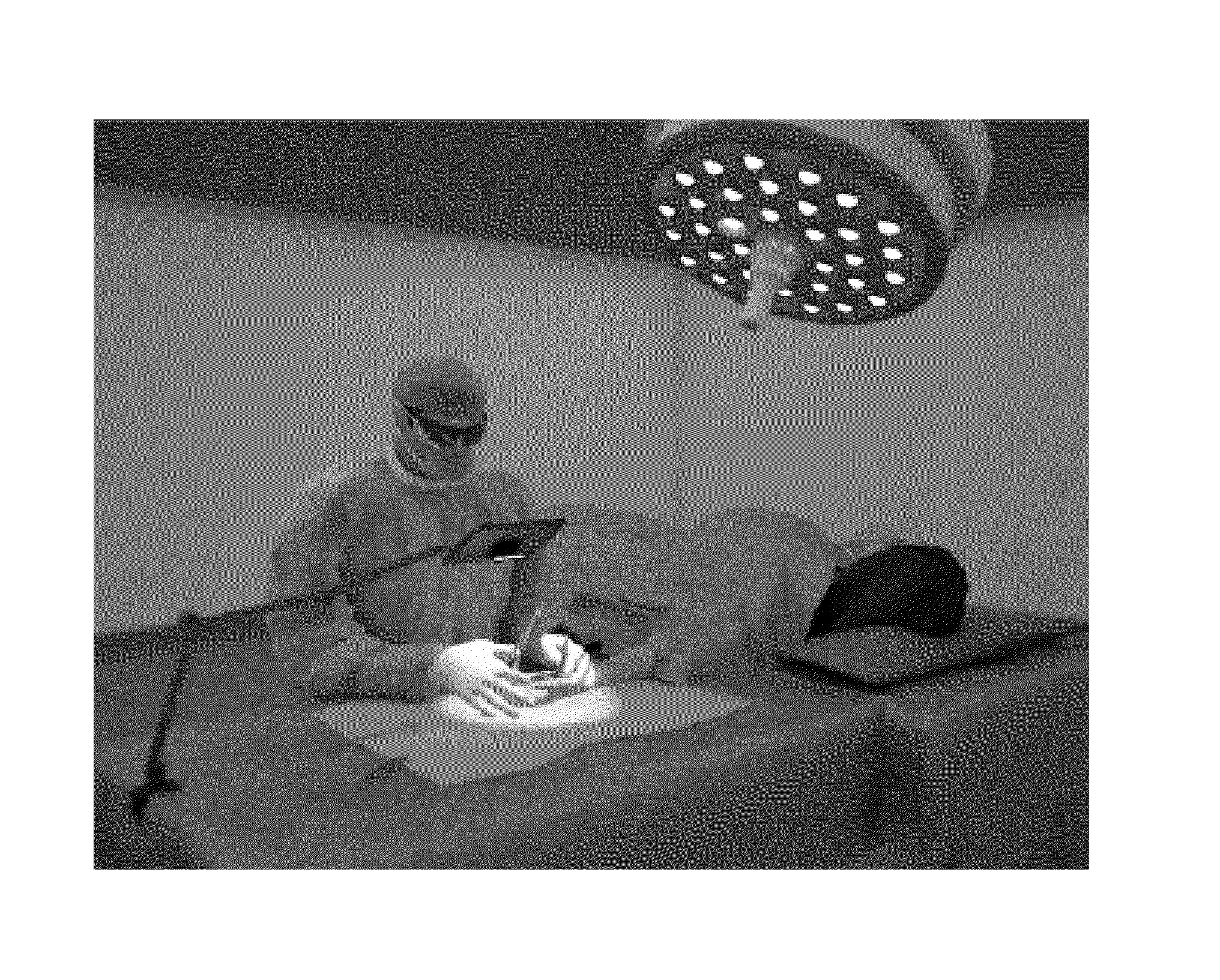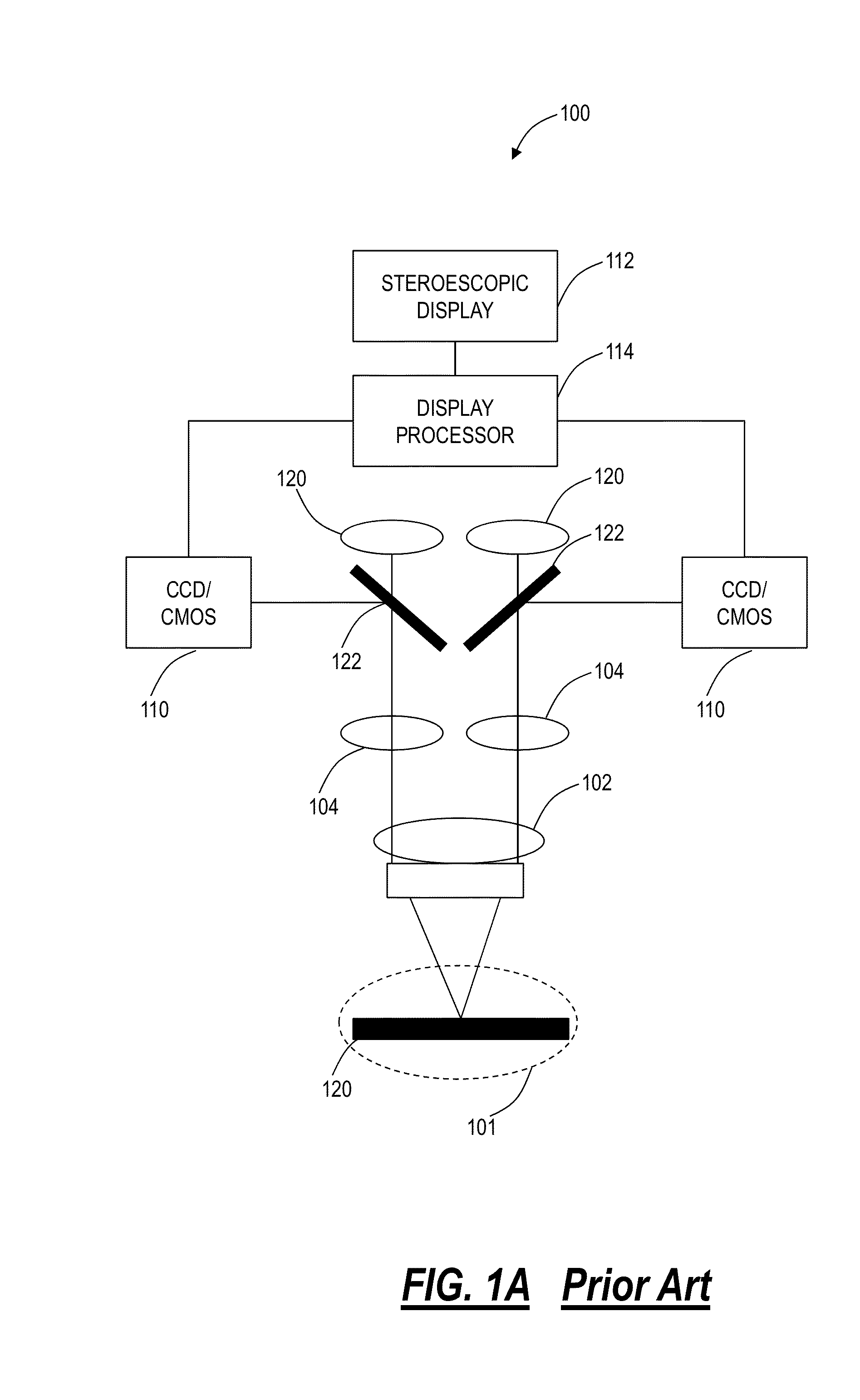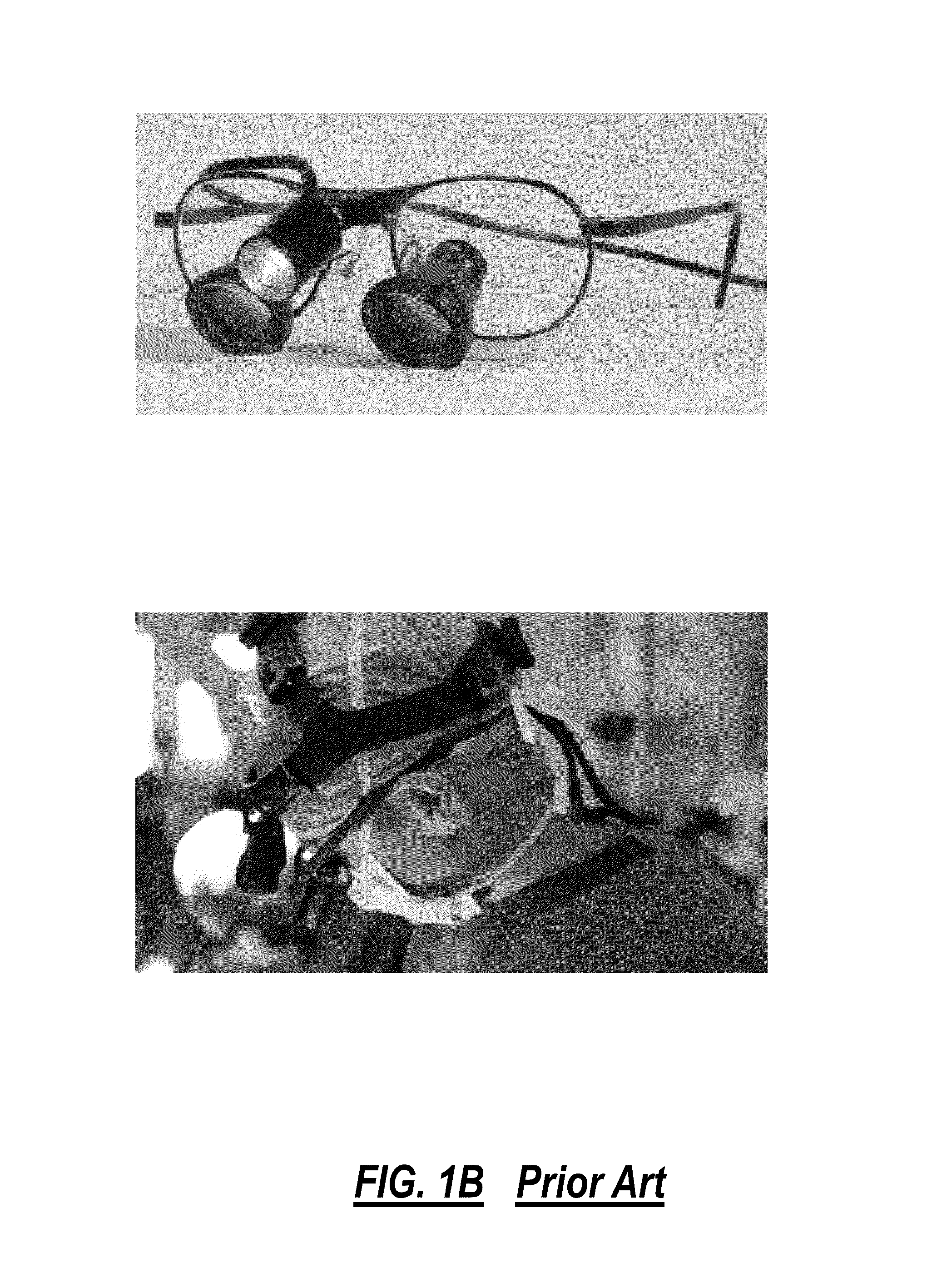Surgical stereo vision systems and methods for microsurgery
a stereo vision and microsurgical technology, applied in the field of surgical stereo vision systems and methods, can solve the problems of limited number of oculars in the physical construction of the microscope, the inability to add additional content, and the main drawback of fov and z dependence still remains
- Summary
- Abstract
- Description
- Claims
- Application Information
AI Technical Summary
Benefits of technology
Problems solved by technology
Method used
Image
Examples
Embodiment Construction
[0030]In various exemplary embodiments, surgical stereo vision systems and methods for microsurgery enable hand-eye collocation, high resolution, and a large field of view. Multiple multimodality sensors, including image sensors, capture properties of an object under the view of the system and the user's micro manipulations of the object. The captured live view is augmented with data from sensors and external databases to aid real-time micro manipulation of the object. The system provides multiple views on one or more flat-panel stereoscopic displays, collaborative manipulation of the object, real time measurements, and panning and tilting of the field of view without moving the object. The system supports microsurgical manipulations to be performed on a patient by a group of surgeons and imparts training to surgeons by recording and replaying the surgical manipulations with a phantom object in the field of view. The system includes a DSM that provides augmented and collocated live ...
PUM
 Login to View More
Login to View More Abstract
Description
Claims
Application Information
 Login to View More
Login to View More - R&D
- Intellectual Property
- Life Sciences
- Materials
- Tech Scout
- Unparalleled Data Quality
- Higher Quality Content
- 60% Fewer Hallucinations
Browse by: Latest US Patents, China's latest patents, Technical Efficacy Thesaurus, Application Domain, Technology Topic, Popular Technical Reports.
© 2025 PatSnap. All rights reserved.Legal|Privacy policy|Modern Slavery Act Transparency Statement|Sitemap|About US| Contact US: help@patsnap.com



